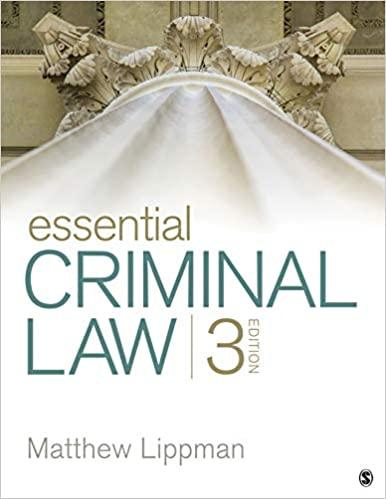Question
Debbie Krawchuk wanted to buy a horse for her 11-yearold daughter to ride around their ranch. She agreed to purchase an eight-year-old Anglo-Arabian gelding, named
Debbie Krawchuk wanted to buy a horse for her 11-yearold daughter to ride around their ranch. She agreed to
purchase an eight-year-old Anglo-Arabian gelding, named Omar, from Eva Ulrychova. The contract was conditional upon Eva's ability to provide a veterinarian's certificate of good health. Eva therefore had the horse checked by Dr Rach, who issued a clean bill of health. Debbie then paid $3000 and took Omar home to her daughter. A short time later, however, she noticed that Omar was cribbing. Cribbing occurs when a horse bites onto a fence rail and breathes deeply. This action gives the animal a sort of high. Depending upon the severity of the condition, a horse may suffer a number of side effects, including a loss of appetite, weight loss, and colic. When Debbie complained about the situation, Eva provided her with a "cribbing collar," which effectively prevented Omar from continuing his bad habit. Debbie nevertheless wants to return Omar
to Eva for a full refund. Eva refuses to comply. She believes that Debbie actually wants to get rid of Omar because he has an occasional tendency to buck. Eva also says, quite correctly, that while cribbing is a condition that affects a horse's health, bucking is not. The fact that Omar bucks therefore cannot possibly constitute a breach of contract. Is Debbie entitled to get her money back? If not, is there any other remedy that she may receive?
Step by Step Solution
There are 3 Steps involved in it
Step: 1

Get Instant Access to Expert-Tailored Solutions
See step-by-step solutions with expert insights and AI powered tools for academic success
Step: 2

Step: 3

Ace Your Homework with AI
Get the answers you need in no time with our AI-driven, step-by-step assistance
Get Started


